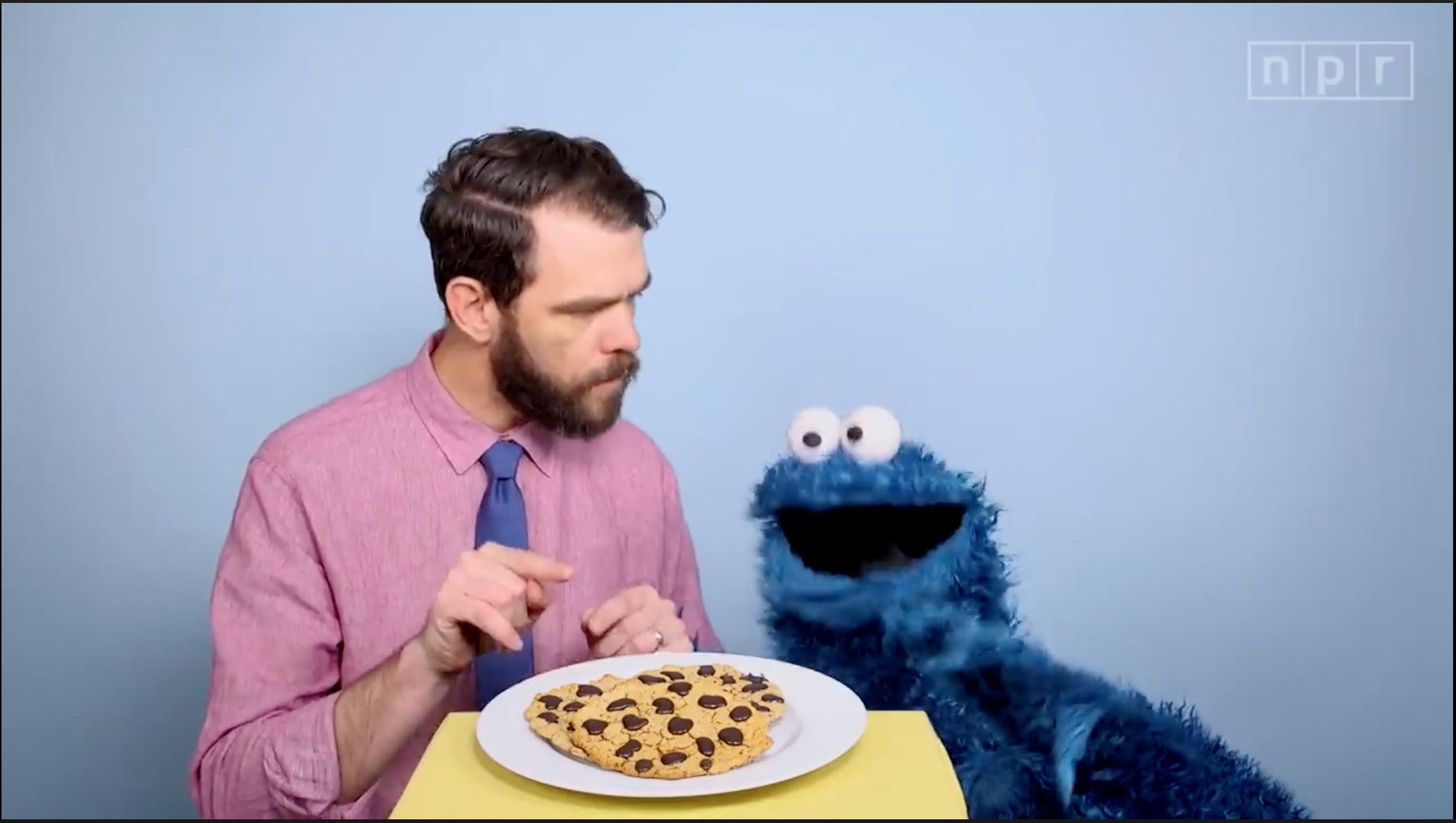
Cookie Monster Practices Self-Regulation / Life Kit Parenting / NPR
50 years ago, Stanford University psychology professor Walter Mischel ran an experiment to test the concept of delayed gratification in children.
Basically, Mischel left a marshmallow in front of a child and told the child that he (or she) could eat the marshmallow, but if the child waited longer, he (or she) could have two marshmallows.
The researcher then left the room for a while and returned.
I won’t go into too much detail, but as can be expected, some of the kids ate the marshmallow immediately, while others waited to earn the second one as well.
Over the years, there was follow up to see how the kids were progressing and studies were published.
Here’s a quote from one such study:
Variations of the self-imposed delay-of-gratification situation in preschool were compared to determine when individual differences in this situation may predict aspects of cognitive and self-regulatory competence and coping in adolescence. Preschool children from a university community participated in experiments that varied features of the self-imposed delay situation. Experimental analyses of the cognitive-attentional processes that affect waiting in this situation helped identify conditions in which delay behavior would be most likely to reflect relevant cognitive and attentional competencies. As hypothesized, in those conditions, coherent patterns of statistically significant correlations were found between seconds of delay time in such conditions in preschool and cognitive and academic competence and ability to cope with frustration and stress in adolescence.
(Translation: kids who delayed gratification were more likely to hold their sh!t together as they grew older.)
This has all been nice and well since the original marshmallow study in 1972.
Many books have been written about how important it is to prep your kids to delay gratification.
There was an inspirational Ted Talk on the subject in 2009 by Joachim de Posada called Don’t eat the marshmallow!
National Public Radio pulled together a show with Sesame Street’s Cookie Monster as part of their Life Kit Parenting .
But this is 2022, and now it turns out that hey, guess what, we got it wrong with that original study, and I quote:
Following the Bing children into their 40s, the new study finds that kids who quickly gave in to the marshmallow temptation are generally no more or less financially secure, educated or physically healthy than their more patient peers. The amount of time the child waited to eat the treat failed to forecast roughly a dozen adult outcomes the researchers tested, including net worth, social standing, high interest-rate debt, diet and exercise habits, smoking, procrastination tendencies and preventative dental care…
So there you have it. It’s okay to give your kids as many marshmallows as they want. Just trust the science.
At least until the next study comes out.
